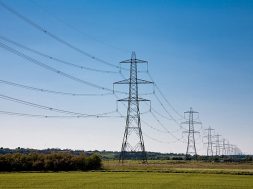
Electric Vehicle Charging Time Could Come Down to 10 Mins, Claim US Researchers – EQ Mag Pro
The researchers based in the US are aiming to lower down the charging time of EVs to 10 minutes by 2027
One of the biggest roadblocks in the shift to Evs from Internal combustion engine (ICE) vehicles, has been the snail pace growth of the charging ecosystem. While ICE vehicles can get loaded up in a matter of minutes, most present-day EVs take anywhere between half an hour to seven hours to juice up their battery. This slow charging tends to repel people from buying an EV over an ICE car. Now, scientists associated with the American Chemical Society have reported a new superfast charging method that can reduce the charging time of EVs to less than 10 minutes.
The newly method was presented at the fall meeting of ACS on August 22, reported Eureka Alert. Commenting on the findings, Eric Dufek, the lead author of the study, in a statement, said, “We have significantly increased the amount of energy that can go into a battery cell in a short amount of time. Currently, we are seeing batteries charge to over 90 per cent in 10 minutes without lithium plating or cathode cracking.”
He explained that charging a lithium-ion battery involves lithium ions shifting between negative and positive nodes of the battery. Speeding up the charging process can lead to lithium ions migrating less efficiently, causing early battery failure. It can trigger a process called plating, which involves lithium metal building up or can cause cracking of the cathode.
To address these challenges, the team of researchers used machine learning techniques and fed the algorithm loads of data about battery conditions during charging and discharging. This data resulted in the analysis churning out novel protocols for batteries that worked best for the battery without damaging its life. This machine learning model helped the researchers achieve a charging speed of 0.15 per cent per second.
If used on Evs, the technology could be a breakthrough in tackling the challenges in the way of creating an effective charging ecosystem for electrically powered cars.
















